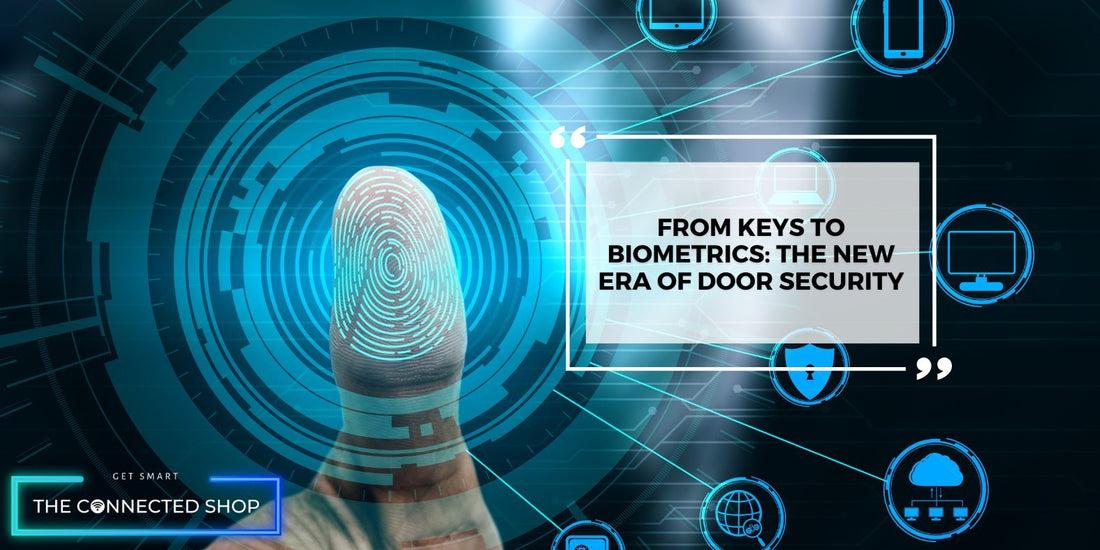As technology evolves, so do the methods by which we secure our spaces. Smart door locks, once primarily reserved for futuristic concepts, are now at the forefront of accessible, everyday security solutions. With the integration of facial recognition and biometric features, smart door locks have surpassed traditional keys, enhancing security, convenience, and control for both personal and commercial environments.
This shift toward biometric security has transformed access control, making spaces across various industries safer and more efficient. In this article, we’ll explore the technological advantages of smart door locks with biometric features, uncovering the convenience and enhanced security they bring to diverse environments.
Smart Door Locks: A Growing Trend in Security
Smart door locks represent a revolutionary step in security technology. As we transition away from physical keys, the demand for smart door locks is rising across industries. According to recent reports, the global market for smart door locks is experiencing rapid growth, driven by the convenience and security they offer compared to traditional locks.
Biometric Technology and Facial Recognition in Smart Door Locks
The integration of biometric technology, particularly facial recognition, into smart door locks has revolutionized access control by merging convenience with robust security. Biometrics rely on identifying unique biological characteristics such as facial structure, fingerprints, or even iris patterns, which makes each user’s access credentials nearly impossible to replicate. This advanced technology has introduced a transformative shift in the way people secure their spaces, from homes to offices and public buildings.
How Biometric Technology Works in Smart Door Locks
Biometric smart door locks use sensors and algorithms to identify specific biological traits. When a user approaches a door equipped with a biometric lock, the system scans their face or fingerprint, compares the captured data with the stored biometric template, and grants or denies access based on the match. The process is swift, often taking just seconds, and offers a level of accuracy that surpasses traditional methods like PIN codes or keys, which can be easily shared, lost, or stolen.
Facial recognition, in particular, leverages cameras and infrared sensors to create a 3D map of a person’s facial features, identifying even subtle nuances. This approach minimizes the risk of unauthorized access from common issues like stolen keys or shared passwords, offering heightened security for users across different environments.
The Advantages of Biometric Smart Door Locks Across Industries
Enhanced Security for Commercial Spaces
Biometric smart door locks are revolutionizing access control for commercial spaces, providing enhanced security in environments where keyless entry is critical. Businesses benefit from precise access tracking and immediate access revocation when needed, creating a safer workplace with minimal reliance on physical keys.
For example, healthcare facilities use biometric smart door locks to limit access to areas with sensitive medical records, while corporate offices are using facial recognition-enabled locks to grant secure, contactless access to specific employees. The technology not only protects these spaces from unauthorized access but also simplifies access management for administrators.
Improved Convenience in Hospitality
Hotels and resorts are seeing substantial benefits from implementing facial recognition and biometric-enabled smart door locks. With contactless check-ins on the rise, many properties are turning to biometric door locks to streamline guest experiences and ensure greater security.
Guests can now enter their rooms without fumbling for keycards or codes. For instance, some forward-thinking hotels have begun using facial recognition at room entrances, which enhances convenience and adds a personalized, tech-savvy touch to the guest experience. This technology also minimizes the potential for lost or stolen keycards, reducing security concerns for both the property and its guests.
Access Control in Residential Properties
For homeowners, smart door locks with facial recognition and biometrics offer unmatched convenience and peace of mind. Homeowners can allow family members and trusted guests access with a touch or scan, eliminating the need for spare keys. Additionally, residents can monitor entry activity remotely and receive real-time alerts in the event of unauthorized access attempts, providing an extra layer of security.
Many property managers and landlords are beginning to incorporate smart door locks with biometric features in residential buildings. The convenience of managing entry without physical keys is especially appealing to rental property owners, as it allows for easy, secure access without having to change locks when tenants move out.
Challenges and Future Potential
While biometric technology is a powerful tool for securing spaces, it’s essential to address concerns about data privacy and ethical use, especially with facial recognition. Reputable manufacturers are implementing robust encryption and data protection measures to ensure that users' biometric data is stored securely and used only for authentication purposes.
As technology advances, we can anticipate even more sophisticated biometric features in smart door locks. For instance, emerging systems may combine multiple biometric markers, such as combining facial recognition with voice or iris recognition, creating a multi-layered security approach that further reduces the risk of unauthorized access.
Conclusion: The Future of Smart Door Locks
As the demand for high-tech security solutions increases, smart door locks equipped with facial recognition and biometric features are emerging as powerful tools across industries. They provide a seamless blend of security, convenience, and advanced access control that is adaptable to various settings, from private residences to commercial establishments.
The future of access control lies in smart door locks, as they continue to evolve with technological advancements, delivering reliable, efficient, and user-friendly solutions. Embracing this shift is not only a step toward improved security but also a testament to the progress and potential of smart technology in modern-day security. Whether for a business, hotel, or home, the transition to biometric-enabled smart door locks offers an attractive and practical approach to securing spaces in today’s digital age.





